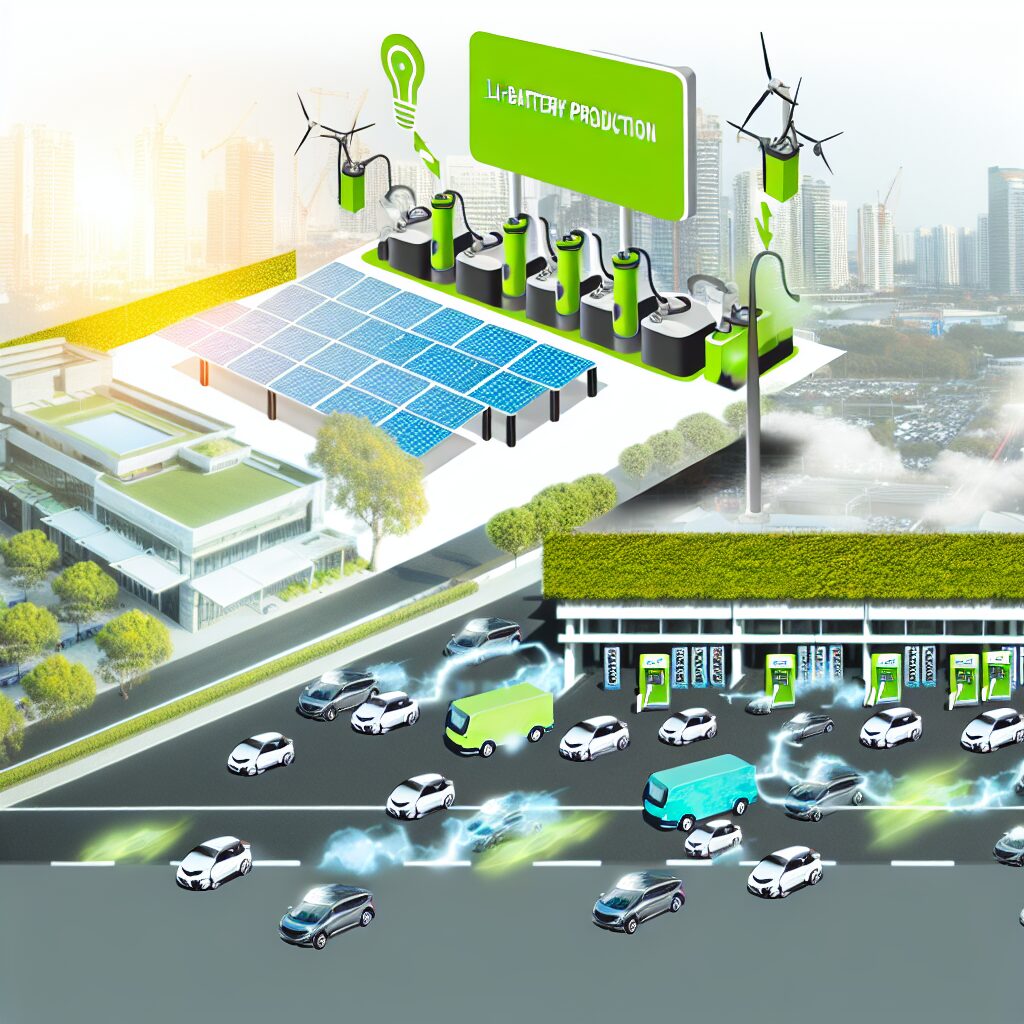Surging Demand for Li-ion Batteries Driven by EV Proliferation
The electrification of transportation is no longer a distant dream but a rapidly unfolding reality. As electric vehicles (EVs) become the new norm, the demand for lithium-ion (Li-ion) batteries is experiencing unprecedented growth. This surge is not just a fleeting trend but a significant shift driven by technological advancements, environmental concerns, and supportive government policies.
The Backbone of the EV Revolution
Lithium-ion batteries have emerged as the cornerstone of the electric vehicle industry. Known for their high energy density, long life cycles, and relatively low maintenance, Li-ion batteries are the preferred choice for powering EVs. The automotive industry’s shift from internal combustion engines to electric drivetrains has significantly amplified the need for these efficient energy storage solutions.
Why Li-ion Batteries?
Several factors make Li-ion batteries the go-to option for EV manufacturers:
- High Energy Density: Li-ion batteries can store more energy per unit weight compared to other battery types, making them ideal for electric vehicles that require lightweight yet powerful energy sources.
- Longer Lifespan: These batteries offer longer life cycles, ensuring that EVs can run efficiently over extended periods without frequent battery replacements.
- Fast Charging: The ability to recharge quickly is crucial for EVs, and Li-ion batteries excel in this regard, reducing downtime and enhancing convenience for users.
Environmental and Economic Implications
The environmental benefits of switching to electric vehicles are substantial. EVs produce zero tailpipe emissions, significantly reducing the carbon footprint compared to traditional gasoline-powered vehicles. This shift is crucial in combating climate change and improving air quality in urban areas. However, the production and disposal of Li-ion batteries do pose environmental challenges, necessitating ongoing research into sustainable practices and recycling technologies.
Economically, the proliferation of EVs and the consequent demand for Li-ion batteries are creating new opportunities and markets. Battery manufacturing is becoming a pivotal industry, attracting substantial investments and driving job creation. Countries and companies that position themselves as leaders in battery technology and production are likely to reap significant economic benefits.
Government Policies and Initiatives
Government policies worldwide are playing a crucial role in accelerating the adoption of electric vehicles and, by extension, the demand for Li-ion batteries. Incentives such as tax rebates, subsidies, and grants for EV buyers and manufacturers are making electric vehicles more accessible and affordable. Additionally, investments in charging infrastructure are alleviating range anxiety, one of the significant barriers to EV adoption.
Countries like China, the United States, and members of the European Union are leading the charge with ambitious targets for EV adoption and stringent emission regulations. These policies are not only fostering a favorable environment for EV growth but also stimulating advancements in battery technology.
Challenges and Future Outlook
Despite the promising growth, the Li-ion battery industry faces several challenges. Supply chain constraints, particularly concerning the availability of raw materials like lithium, cobalt, and nickel, pose significant risks. The extraction and processing of these materials have environmental and ethical implications that need to be addressed.
Moreover, the rapid pace of technological advancements means that today’s state-of-the-art Li-ion batteries could become obsolete in the future. Continuous innovation is essential to enhance battery performance, reduce costs, and develop sustainable recycling methods.
Looking ahead, the future of Li-ion batteries appears bright. Ongoing research into alternative materials and battery chemistries promises to overcome current limitations. Solid-state batteries, for instance, are emerging as a potential game-changer, offering higher energy densities and improved safety.
Conclusion
The surging demand for Li-ion batteries, driven by the proliferation of electric vehicles, marks a transformative period in the automotive industry. As governments, companies, and consumers align towards a more sustainable future, the role of Li-ion batteries will only become more pivotal. Navigating the challenges and capitalizing on the opportunities will require concerted efforts, but the potential rewards—a cleaner environment, economic growth, and technological advancements—are well worth the endeavor.
Source
https://www.google.com/url?rct=j&sa=t&url=https://www.mobilityoutlook.com/analysis/proliferation-of-evs-drives-surging-demand-for-li-ion-batteries/&ct=ga&cd=CAIyGmY4OWY5OWY3NjY3MWI2NzI6Y29tOmVuOlVT&usg=AOvVaw2TYzEM8XwkPgqfCvi1xl8t

